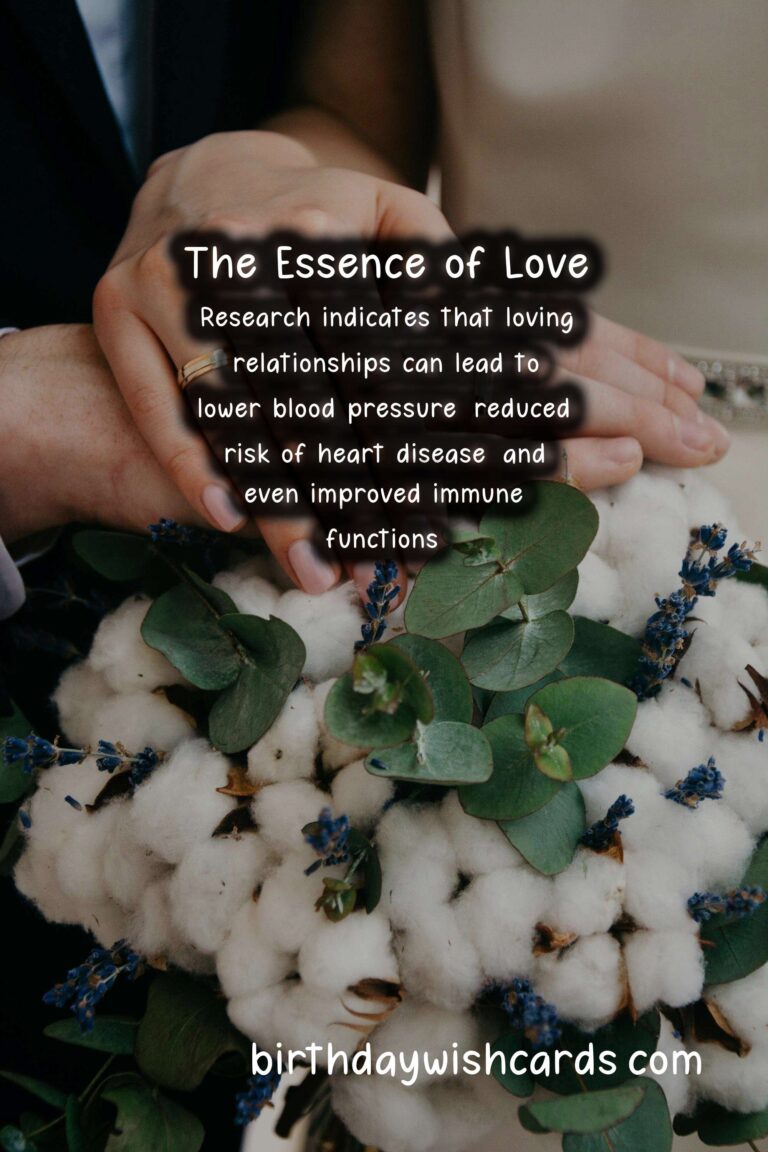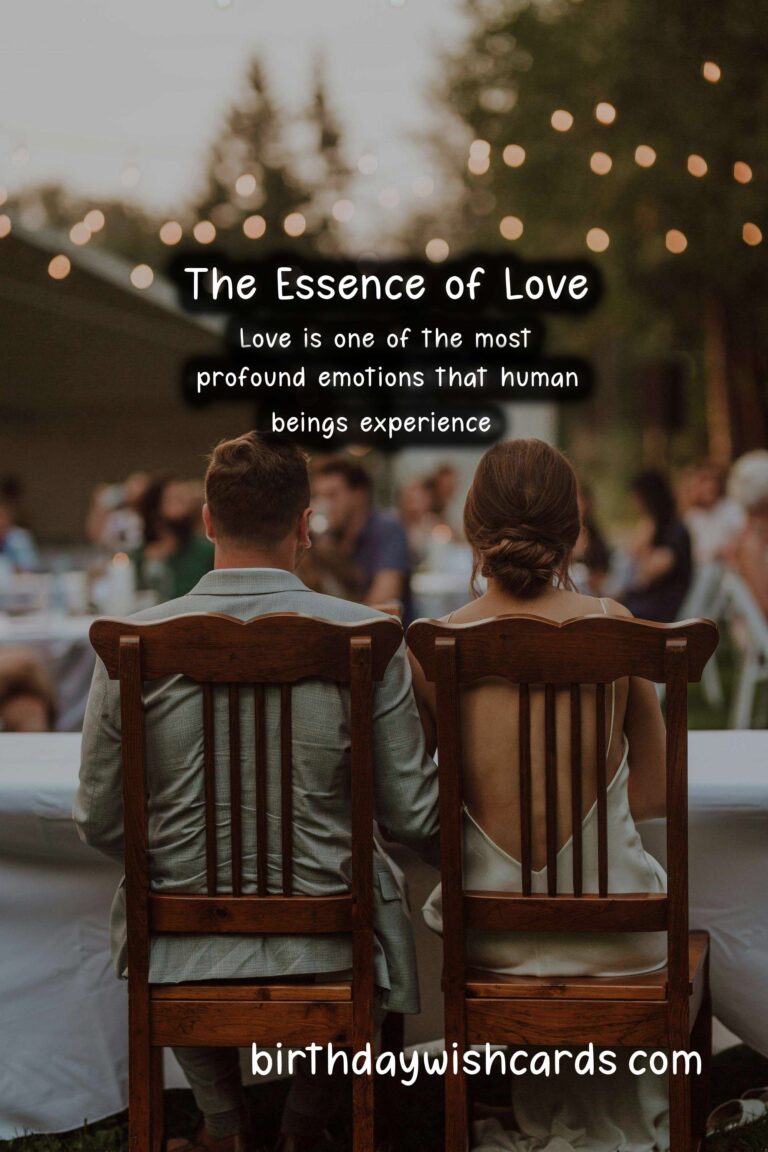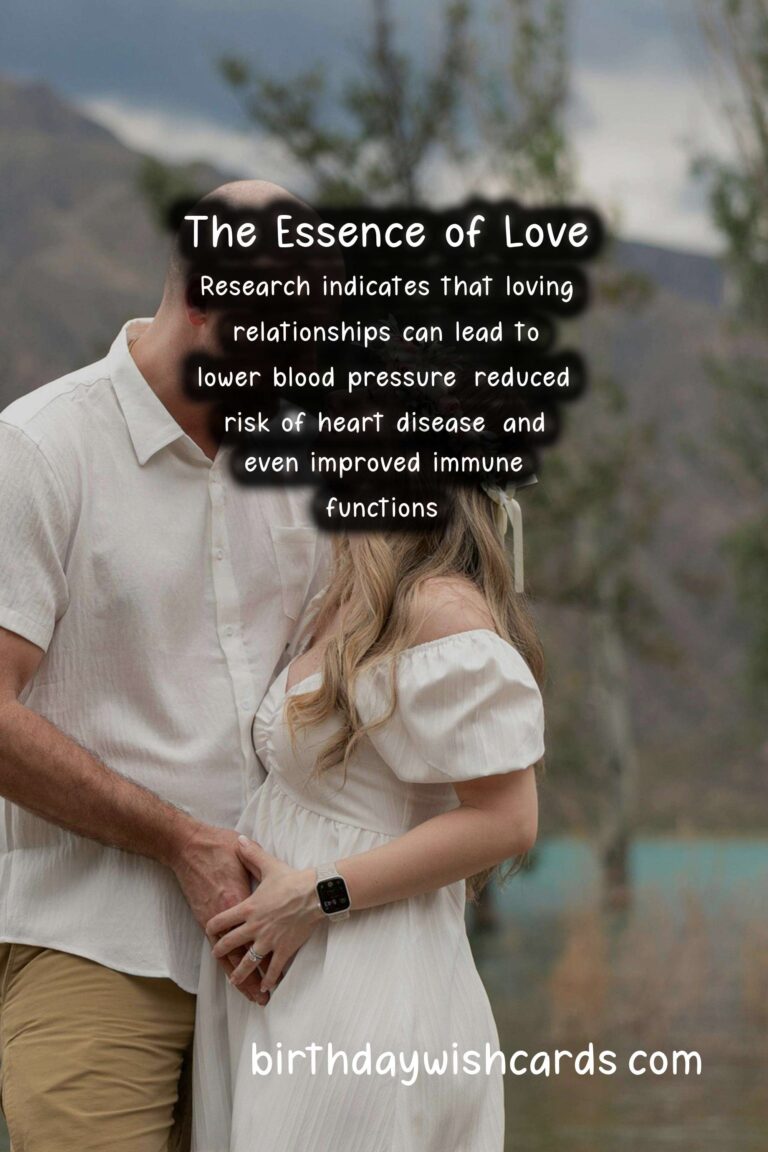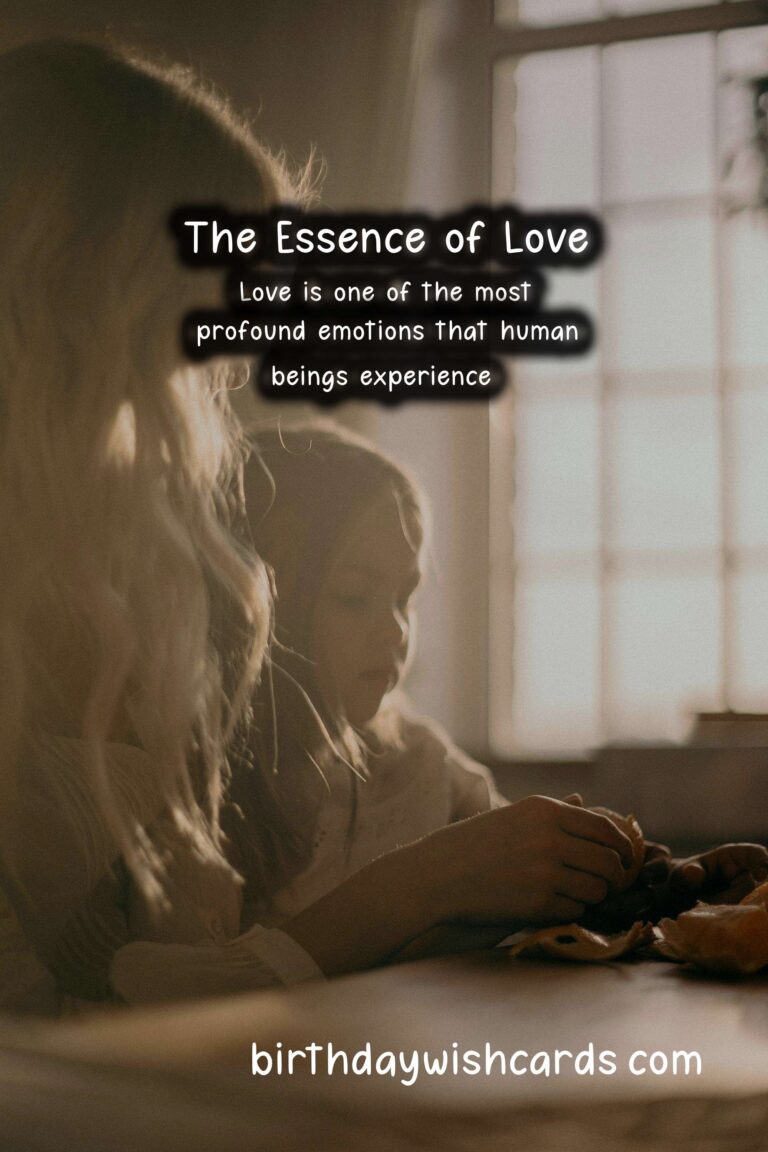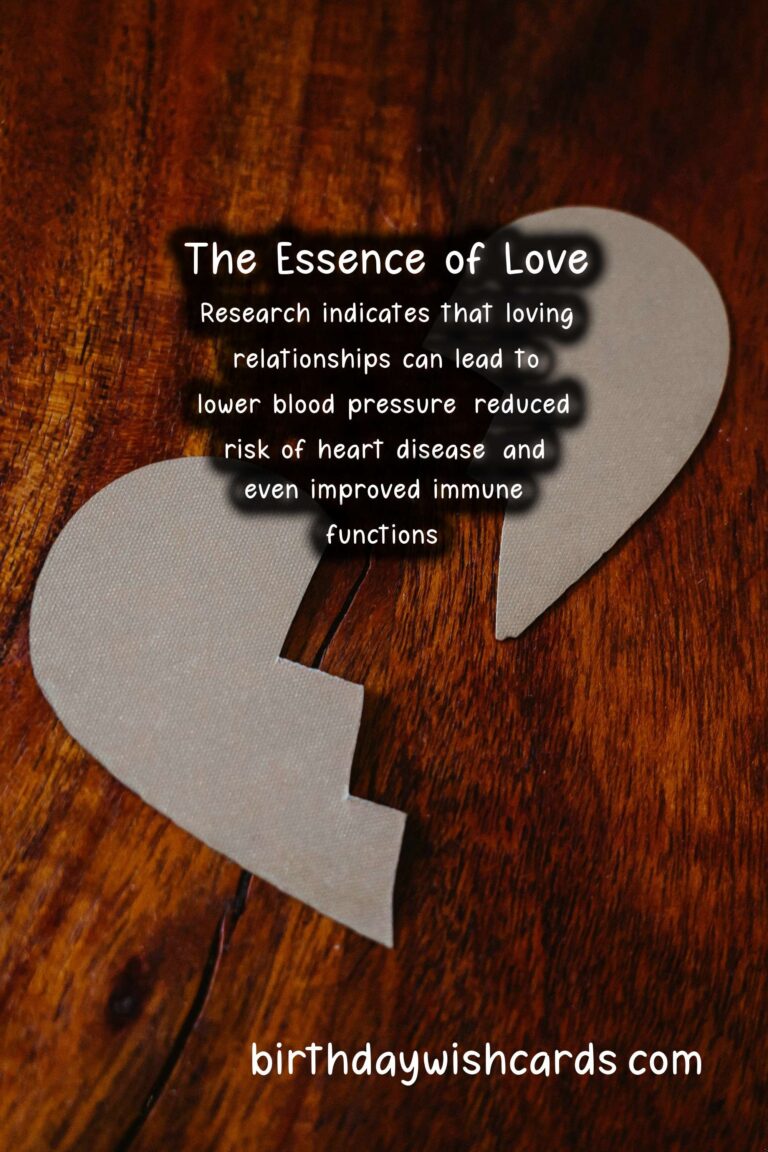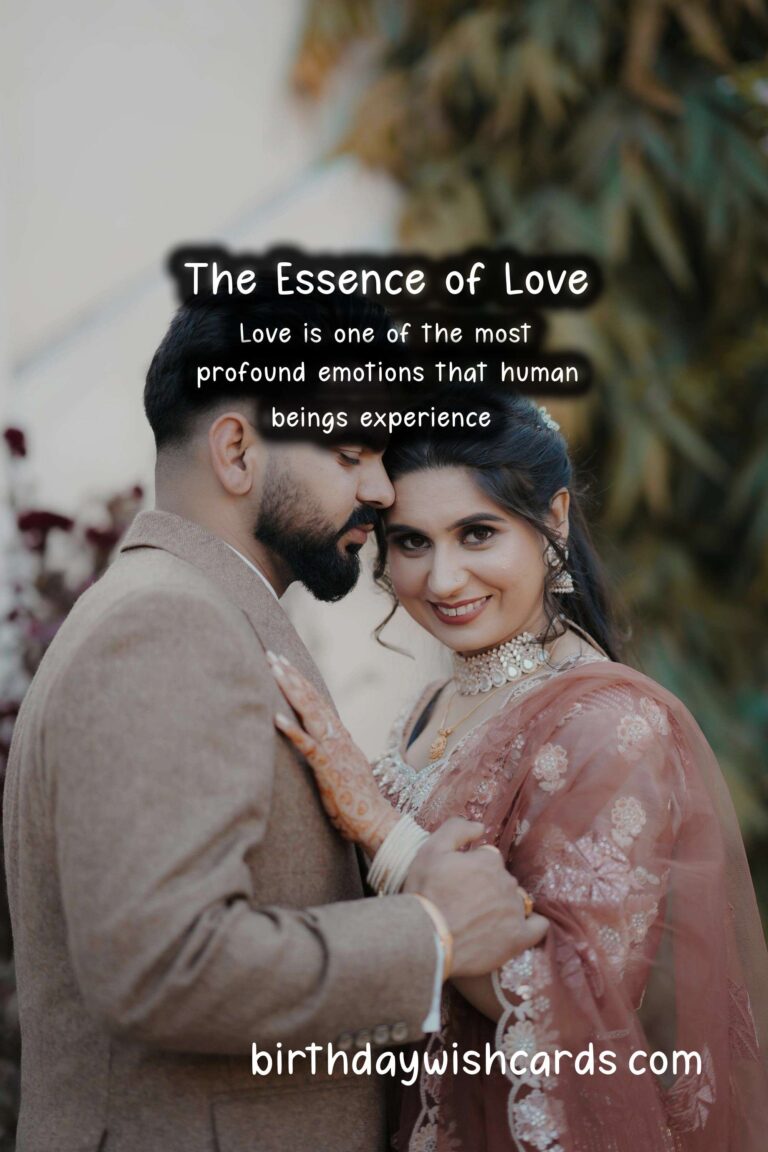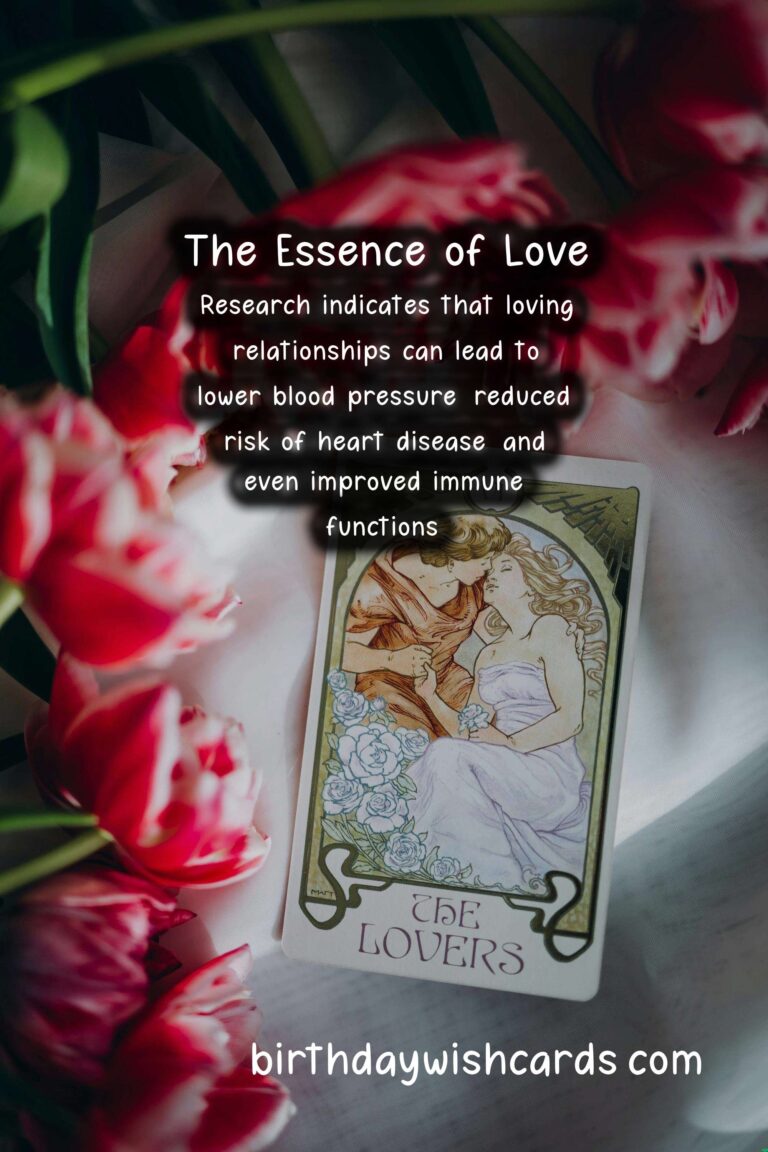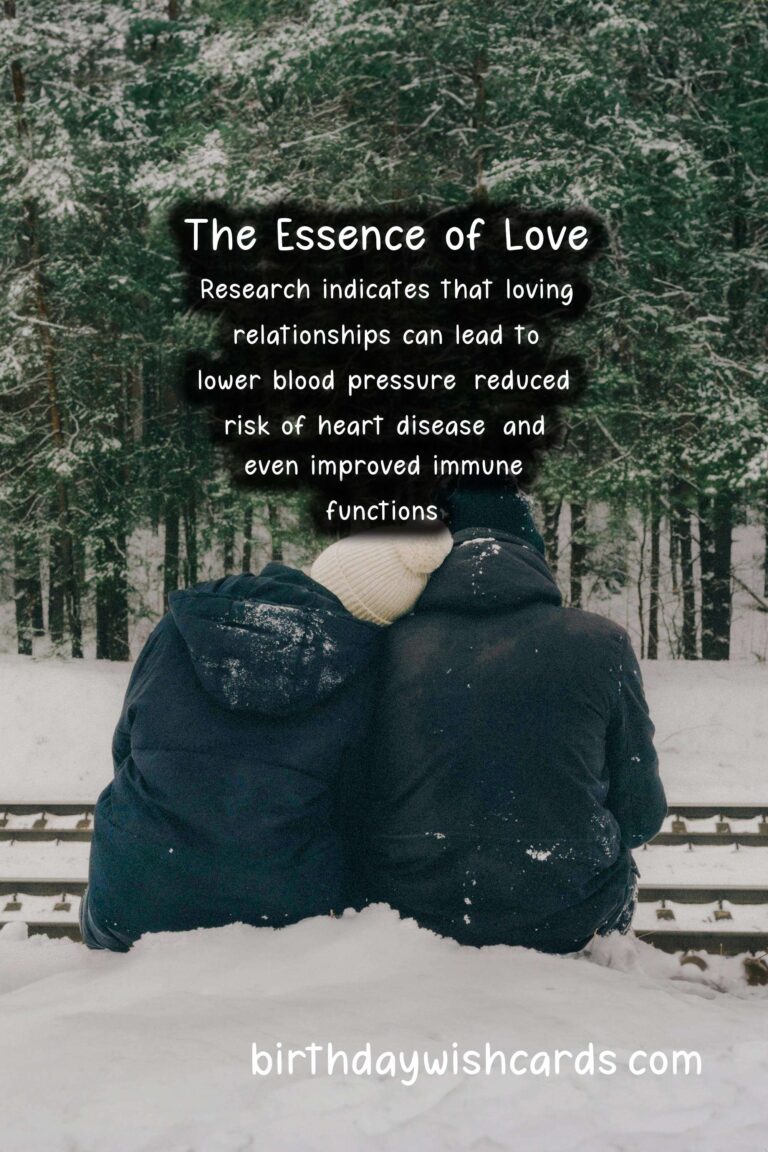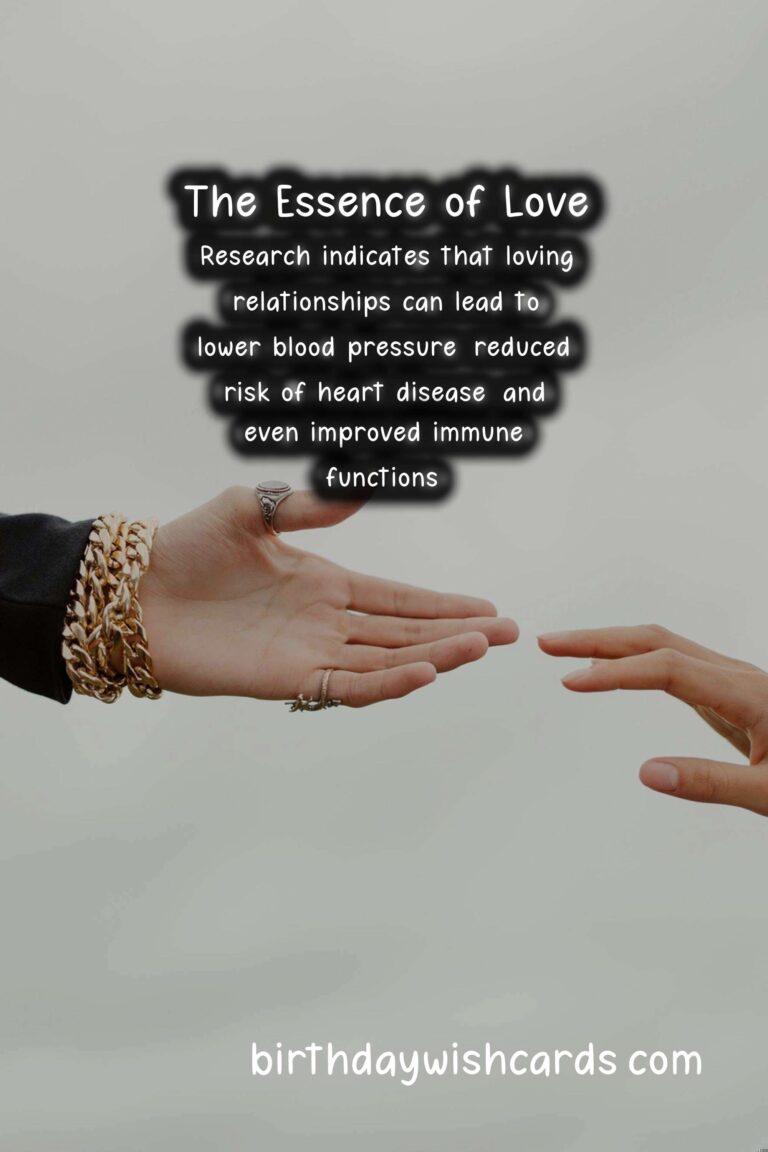
Love is one of the most profound emotions that human beings experience. It has inspired countless stories, songs, and works of art throughout history. But beyond the romantic notions of love, there are some fascinating facts about lovers that may surprise you. In this article, we will explore these intriguing aspects of love, relationships, and the psychology behind them.
The Science of Love
Love is not just a feeling; it’s a complex chemical reaction in our brains. When we fall in love, our brain releases a cocktail of chemicals including dopamine, oxytocin, and adrenaline. These chemicals foster feelings of happiness, attachment, and excitement. Interestingly, studies have shown that the same areas of the brain light up when we fall in love as when we consume food or drugs.
How Love Affects Our Health
It’s not just our emotional well-being that benefits from love; our physical health does as well. Research indicates that loving relationships can lead to lower blood pressure, reduced risk of heart disease, and even improved immune functions. In fact, people in happy relationships often report a higher quality of life and mental health.
A Love Story Through History
Throughout history, love has played a significant role in shaping society and culture. For example, the love stories of Cleopatra and Mark Antony or Elizabeth Bennet and Mr. Darcy have captured the imagination of audiences for generations. These tales highlight not just romantic love, but also the cultural and societal pressures that influence relationships.
The Different Faces of Love
Love manifests in various forms—romantic love, platonic love, familial love, and self-love. Each type has its significance and impact on our lives. Romantic love deepens our emotional connections, platonic love offers support and companionship, familial love strengthens bonds, and self-love promotes healthy relationships with oneself.
Cultural Differences in Love
Love is viewed differently across cultures. In some societies, arranged marriages are common and seen as a way to build family alliances. In others, love is celebrated as a fundamental basis for marriage. These cultural differences shape how lovers express their feelings and commitment to one another.
The Role of Technology in Modern Love
In today’s digital age, love has taken on new forms through online dating and social media. Apps like Tinder and Bumble have changed how people meet and connect. While some criticize these platforms for promoting superficial relationships, others argue they provide an opportunity for people to find love outside their immediate social circles.
Strange Love Facts You Didn’t Know
1. Did you know that the chemical reaction of love can last up to a year? After the initial infatuation phase, relationships often transition into a deeper, more stable form of love.2. According to studies, people are more likely to fall in love with someone who shares their sense of humor.3. The average person will fall in love approximately seven times before marrying.4. The iconic red heart symbol we associate with love originated in the 14th century.
The Psychology Behind Love
From a psychological perspective, attachment styles play a crucial role in how we form romantic relationships. Secure attachments lead to healthier relationships, while anxious or avoidant styles can result in challenges. Understanding these styles can help individuals navigate their love lives more effectively.
Love Languages: How We Express Love
According to Dr. Gary Chapman, there are five love languages—words of affirmation, acts of service, receiving gifts, quality time, and physical touch. Understanding your love language, as well as that of your partner, can enhance emotional connection and communication within a relationship.
What’s Next for Lovers?
As society evolves, so too does the notion of love and relationships. Modern lovers are navigating challenges such as work-life balance, long-distance relationships, and societal changes. The key to lasting love remains open communication, mutual respect, and a willingness to grow together.
Conclusion
Love is a deeply complex and multifaceted force that influences every aspect of our lives. Whether you are in love, seeking love, or exploring love in all its forms, understanding the dynamics and facts about lovers can enrich your experiences. Celebrate love in all its forms, nurture your relationships, and embrace the journey.
Love is one of the most profound emotions that human beings experience. Research indicates that loving relationships can lead to lower blood pressure, reduced risk of heart disease, and even improved immune functions. 
